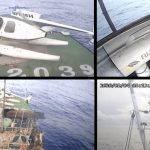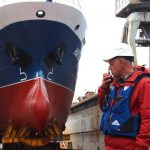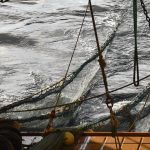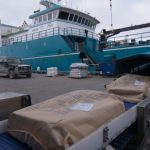Western Australia’s Commission for Occupational Safety and Health has developed a new Cod of Practice for adoption by the thriving fishing industry in the region specifically highlights VHF DSC technology, which is only available in Mobilarm’s unique V100 VHF Locator Beacon, as the most suitable for quickly raising the alarm should a crew member fall off a vessel.
The development of the New Code positions Western Australia as the first Australian state or territory to introduce a man overboard code of practice for the commercial fishing industry and the personal safety focus means that the recommended measures are suitable for any fishery worldwide.
According to the information the code describe the safety guidelines in detail to prevent falls on commercial vessels as well as emergency responses for man overboard incidents and was developed in response to deaths arising from man overboard incidents and recommendations by the state coroner in his report on a death in 2006.
The new Cod of practice include measures like improved use of personal flotation devices, the code highlights Man Overboard (MOB) alerting as vital to saving lives in the harsh professional fishing environment. The Code states, “A procedure or system to immediately alert crew that a person has fallen overboard is an important part of a vessel’s emergency system to ensure falls are quickly detected and crew only remain in the water for a short period of time. The longer a person is in the water the harder it will be to locate them, affecting their chances of survival.”
The Code goes on to recommend a solution that can raise an immediate alarm should a MOB incident occur: ‘…a radio transmission man overboard system that sets of an automatic alarm when somebody goes overboard.’ Lindsay Lyon, CEO of the Perth, Western Australia based Mobilarm, said that the V100 is the only locator beacon to offer this possibility, thanks to its unique use of VHF as the alert mechanism. Once activated the V100 immediately alerts the victims own vessel via its VHF radio and other vessels within VHF range, as opposed to alerting a shore station, which then has to alert the vessels at the scene, which takes time that the person in the water cannot spare.
Lyon also said that fishermen could see the safety benefits of the recommendations in the Code, and that we are able to play our part in protecting those who put their lives on the line everyday when working at sea.








